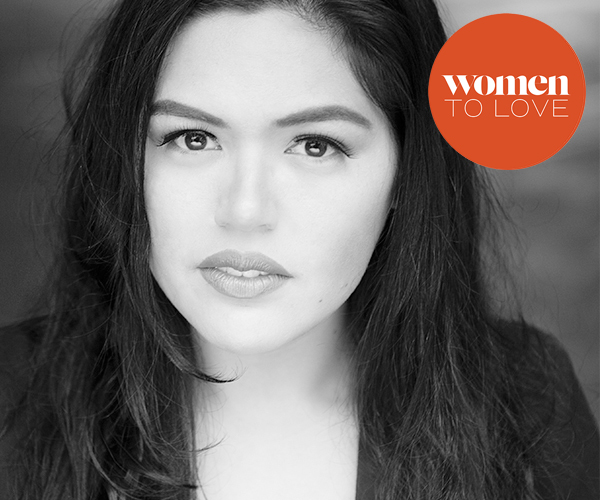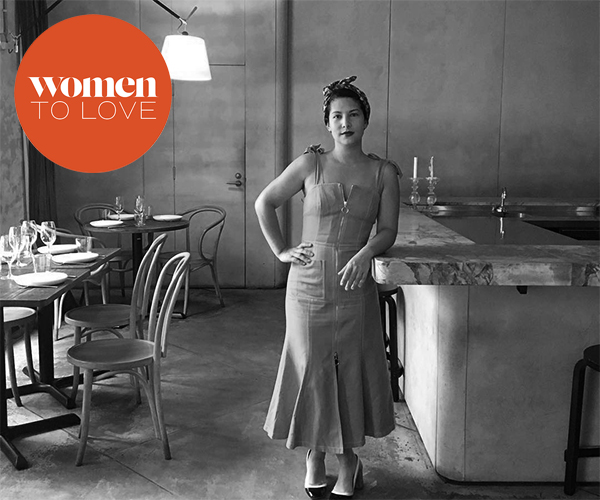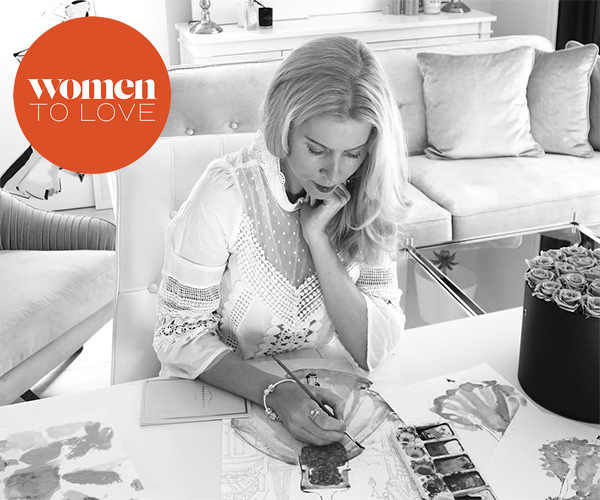It’s hard to define Nakkiah Lui’s job in just one word: She’s an actress, playwright, screenwriter, podcast host, theatre director, columnist, TV panellist. We’re exhausted just thinking about it!
She’s become the go-to commentator for her views on race, gender and everything in between and it’s purely because she’s as intelligent as she is passionate.
Nakkiah recently spoke about the waves of feminism on a panel of equally impressive women at the All About Women festival at the Sydney Opera House.
We caught up with her beforehand to talk about the shocking sense of ownership strangers have of her body, how her mum influences her Q&A appearances and the reason she left her law degree to become the ultimate “slashie”.
You’ve certainly tried your hand at a range of projects, has there been one particular watershed moment for you?
I think the biggest turning point in my career, hands down, was when my grandma died. I took time off law school to look after her and she’d always say, “Don’t reach for the stars, grab them”. She sewed the seed that nobody does life perfectly, you’ve just got to do it right — to do what I love.
After she passed, I decided to give writing, acting and podcasting a go. I really embraced the whole “what have you got lose mentality” and that’s because of my grandma.
Since then, I’ve been so proud of every single project I’ve done and that’s because everything I do, I do it for a reason. Life is tumultuous and happens so quickly, you’ve just got to dive in and accept it’s never easy, but always worth it.
Do you have any advice for young women entering the entertainment industry?
This is so cliché but you have to believe in yourself, no one else will. At the end of the day, it’s your life so you have to believe you can do it or you’ll never make it.
I always say to have bravado, to act like you’re a rich white man. I work with so many men, and they just don’t question themselves as much as women do.
Also have confidence in your work and the fact that just by being a woman, you’re already giving them something unique and different. It was such a freeing moment for me when I realised I was never going to be able to be the old, white guys whose writing I’d always admired, and that was a good thing. I found this new sense of freedom and I’d tell young women to embrace that difference.
It’s common for people to say they don’t regret anything because everything has led them to where they are today, but have you made any mistakes you’d change if you could?
Not asking for help when I should and then it affecting everybody else. I’ll make one little mistake and think I’m the worst person in the world, and then I’m so hard on myself I start to self-sabotage.
I’ve learned it’s okay to be honest about feeling the pressure and ask for help when I need it, otherwise I’ll submit stuff late and it has a negative knock-on effect for everyone I work with and it’s not fair.
I also regret the way I’ve handled criticism in the past. You know, I’ve spent literally hours arguing with people on social media and it’s just not worth the energy put in.
I still think it’s important to stand up for yourself — I love tough women — but I’m reclaiming my time and not spending hours arguing with people who will never agree with me anyway.
You’ve said the hallmarks of your generation’s feminism are a greater understanding of power structures and recognition of whiteness, can you expand on that?
Aboriginal women certainly weren’t included in the first and second waves of feminism — those movements were very much women’s rights for one type of woman. I learned a lot about that from my parents so it might not be unique to my generation, but I’ve definitely noticed my generation is more eager to use specifications within political identities.
I see more feminists questioning an unconscious bias we have against women of colour and a drive to make the invisible visible. We’re recognising intersectional feminism, but while we focus on specificities, it’s important we don’t forget our commonalities. Feminist ideas about oppression and othering also apply to indigenous people.
What kind of subtle sexism are you faced with in the entertainment industry?
Being a woman just has a completely different level of expectations we don’t talk about enough. We have way more outgoing costs; compared to my partner, the amount I have to spend on clothes, skincare and makeup is outrageous. If I have to spend a couple of grand a year on clothes, that’s money I’m not using on a house deposit.
Obviously this isn’t industry specific, but I’ve realised if I make myself more approachable, to be the pretty young lady, people listen to me more. It’s definitely not something I support but I’ve come to accept it as a means to an end. It’s frustrating to know I have to spend extra time getting ready in the morning instead of it being purely about whether I do a good job.
In terms of being an actress specifically, I’ve realised there’s no boundaries—I’m at the behest of other people.
When I filmed the first season of Black Comedy, I was 120kg and I’d constantly get direct messages fetishizing bigger women. I was inundated with comments of ownership over fat bodies and women and they were so gross and confronting—”I like ’em big, but is she too fat to f-k? “I’d never f-k an abo but I’d probably do an Asian.”
Just like when I face racism, be it overt or casual, this kind of stuff just leaves me feeling inferior and I’m always having to ask myself what I should do or even if there’s anything I can do.
That feeling of helplessness, especially when you’re confronted by a colleague or boss, is something we’re really looking at with the #MeToo moment. Do you think Australia’s entertainment industry is any better than what we’ve seen in Hollywood?
Australia has such a long way to go, especially in our coverage of alleged attacks. I always believe the victim, and recently when women have come forward, we’ve reverted to this rhetoric of questioning the woman.
I’m so sick of reading justifications for old, white guys and seeing people on the defence for them all the time. It’s pompous and dehumanising coverage and it’s making women more vulnerable.
I think we’re lucky we have women and some really great young men who are vocal in their support of victims, we just need a lot more of it.
Have you had any particular mentor throughout your career?
I’ve been super lucky and learned the right people always know who you are. A lot of the time it’ll feel like you’re skiing uphill and it feels futile, but if you’re 100 per cent behind what you do, the right people are watching and they’ll help you.
Other than the fantastic people I work with, I’d have to say my mum and grandma were hugely influential. Mum is just so full of tough love and she comes to every single Q&A I speak on. It’s actually good having her in the audience because when she’s looking wild, I know that I have to speak up about whatever she’s angry about. Seeing her fuming face in the crowd really makes me focus because I’m like, “If I don’t say anything, Mum will”.


